Escrito especialmente para soportes electrónicos,
Los verbos hindi contiene una introducción a la formación de todos los tiempos verbales en hindi, además de cien verbos esenciales completamente conjugados, junto con su traducción. Este libro electrónico está adaptado y formateado para que los usuarios puedan buscar en todo el texto, ya que no contiene imágenes que impidan la lectura adecuada en este formato.

Editorial Karibdis
Verbos hindi
Colección 100 verbos - Volumen 8 Primera edición Karibdis 24.05.18 Título original:
Verbos hindi © Editorial Karibdis, 2018 Diseño de cubierta: Karina Martínez Ramírez Elementos de la cubierta: Creative_hat / Freepik Editor digital: Karibdis Primera edición: mayo 2018 Reservados todos los derechos. No se permite la reproducción total o parcial de esta obra, ni su incorporación a un sistema informático, ni su transmisión en cualquier forma o por cualquier medio (electrónico, mecánico, fotocopia, grabación u otros) sin autorización previa y por escrito de los titulares del
copyright. La infracción de dichos derechos puede constituir un delito contra la propiedad intelectual. Si encuentra alguna errata, algún error o fallo en esta obra y quiere comunicárnoslo, puede escribir a la siguiente dirección de correo electrónico: .
Estaremos encantados de atender sus dudas, comentarios, propuestas de mejora y cualquier observación.
VERBOS HINDI
1. Introducción
La lengua hindi pertenece a las lenguas indoiranias, como el persa, el urdu y el bengalí. Las características principales del verbo hindi son:
- modo: indicativo, subjuntivo, presuntivo, imperativo
- aspecto: perfectivo, imperfectivo, continuo
- tiempo: presente, pasado, futuro
- persona: primera, segunda, tercera
- número: singular, plural
- voz: activa, pasiva
2. Clasificación de los verbos
Los verbos hindi se dividen en dos grupos:
- Verbos regulares: añaden las desinencias sin sufrir cambios en la raíz
- Verbos irregulares: sufren cambios en la raíz
3. Presente simple
El presente simple en hindi de los verbos regulares se forma con el participio presente y las formas simples de presente del verbo auxiliar
होना honā (ser):
बोलना bolnā (hablar) बोल
ताहूँ boltā hū̃
m बोल
तीहूँ boltī hū̃
f बोल
ताहै boltā hai
m बोल
तीहै boltī hai
f बोल
ताहै boltā hai
m बोल
तीहै boltī hai
f बोल
तेहैं bolte ha͠i
m बोल
तीहैं boltī ha͠i
f बोल
तेहो bolte ho
m बोल
तीहो boltī ho
f बोल
तेहैं bolte ha͠i
m बोल
तीहैं boltī ha͠i
f El presente continuo en hindi de todos los verbos se forma con la raíz del verbo sin desinencias, el participio pasado del verbo auxiliar
रहना rahnā (estar), que varía las desinencias según el género y número del sujeto, y por último el presente de indicativo del verbo
होना honā (ser):
बोलना bolnā (hablar) बोल र
हाहूँ bol rahā hū̃
m बोल र
हीहूँ bol rahī hū̃
f बोल र
हाहै bol rahā hai
m बोल र
हीहै bol rahī hai
f बोल र
हाहै bol rahā hai
m बोल र
हीहै bol rahī hai
f बोल र
हेहैं bol rahe ha͠i
m बोल र
हीहैं bol rahī ha͠i
f बोल र
हेहो bol rahe ho
m बोल र
हीहो bol rahī ho
f बोल र
हेहैं bol rahe ha͠i
m बोल र
हीहैं bol rahī ha͠i
f5. Presente perfecto
El presente perfecto de todos los verbos se forma con el participio pasado del verbo principal más el presente simple del verbo auxiliar
होना honā (ser):
बोलना bolnā (hablar) बो
लाहूँ bolā hū̃
m बो
लीहूँ bolī hū̃
f बो
लाहै bolā hai
m बो
लीहै bolī hai
f बो
लाहै bolā hai
m बो
लीहै bolī hai
f बो
लेहैं bole ha͠i
m बो
लीहैं bolī ha͠i
f बो
लेहो bole ho
m बो
लीहो bolī ho
f बो
लेहैं bole ha͠i
m बो
लीहैं bolī ha͠i
f7. Pasado imperfecto
El pasado imperfecto de todos los verbos se forma con el participio presente del verbo principal más el pasado simple del verbo auxiliar
होना honā (ser):
बोलना bolnā (hablar) बोल
ताथा boltā thā
m बोल
तीथी boltī thī
f बोल
ताथा boltā thā
m बोल
तीथी boltī thī
f बोल
ताथा boltā thā
m बोल
तीथी boltī thī
f बोल
तेथे bolte the
m बोल
तीथीं boltī thī̃
f बोल
तेथे bolte the
m बोल
तीथीं boltī thī̃
f बोल
तेथे bolte the
m बोल
तीथीं boltī thī̃
f8. Pasado continuo
El pasado continuo de todos los verbos en hindi se forma con la raíz del verbo principal sin desinencias, el participio pasado del verbo auxiliar
रहना rahnā (estar) y el pasado imperfecto del verbo auxiliar
होना honā (ser):
बोलना bolnā (hablar) बोल र
हाथा bol rahā thā
m बोल र
हीथी bol rahī thī
f बोल र
हाथा bol rahā thā
m बोल र
हीथी bol rahī thī
f बोल र
हाथा bol rahā thā
m बोल र
हीथी bol rahī thī
f बोल र
हेथे bol rahe the
m बोल र
हीथीं bol rahī thī̃
f बोल र
हेथे bol rahe the
m बोल र
हीथीं bol rahī thī̃
f बोल र
हेथे bol rahe the
m बोल र
हीथीं bol rahī thī̃
f
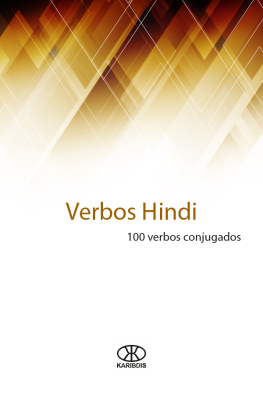


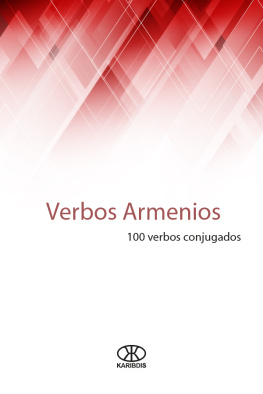
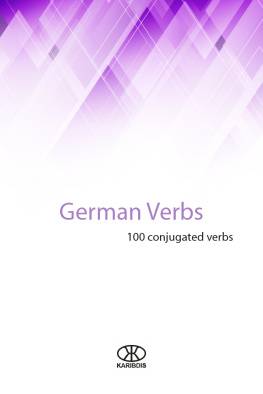
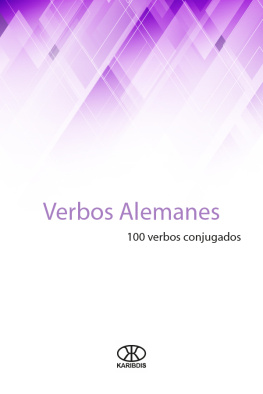
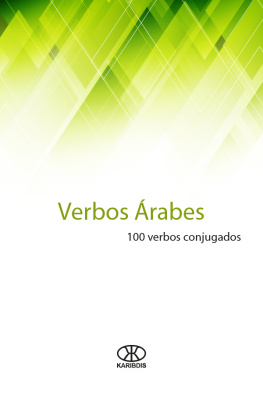
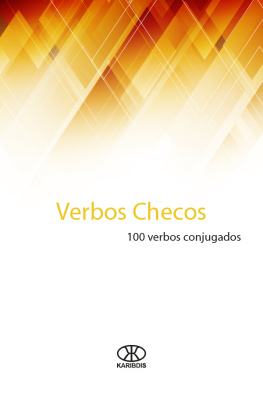






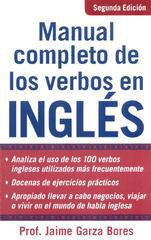

 Editorial Karibdis
Editorial Karibdis